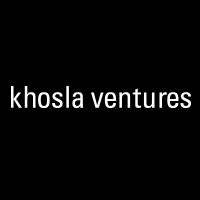SAN FRANCISCO– Encellin, a personalized regenerative medicine biotech company developing novel cell-based approaches to deliver sustained therapies with a single implant, today announced the closing of a $5.9M Seed financing round. The round was co-led by Khosla Ventures and SV Latam Capital, with participation from Sandhill Angels and Y Combinator.
The new funding will be used to advance development of its technology platform and programs in hypoglycemia and hypocalcemia. The financing will also be used to build out the laboratory and also expand the team. Encellin will also expand into areas with readily available renewable cell sources and engineered cells, to encapsulate any cellular cargo in products from its proprietary platform.
Encellin builds implantable “cell pouches” to treat chronic diseases. The company’s technology combines ad novel cell encapsulation technology with functional cell therapies to treat chronic diseases, starting with endocrine disorders. Encellin’s lead programs focus on hypoglycemia, the highest unmet medical need in Type 1 diabetes and hypocalcemia, which affects one-third of dialysis patients. The platform is focused on leveraging the power of cells to deliver years of therapies with a single implant.
“This seed financing round led by leading investors, enables us to advance development of our Cell Encapsulation Device in a variety of different indications beginning with chronic endocrine disorders,” said Crystal Nyitray, Ph.D., CEO & Co-Founder, Encellin. “Our team converges the advanced technologies in nano-technology and bioengineering to develop our proprietary Encellin platform which utilizes known biocompatible materials fabricated into nanoporous, soft pouches to support cell function. We look forward to advancing our pipeline focused on endocrine disorders to leverage the power of cells to deliver sustained therapies for patients with a single implant.”
“Encellin’s encapsulation technology allows enclosed cells to function like smart molecular factories, releasing therapies when needed,” said Alex Morgan, M.D., Ph.D., Partner at Khosla Ventures. “The encapsulation technology protects the cells in the body, while enabling an incredible amount of flexibility for what kinds of cells are encapsulated and what their output can be. Today they are focusing on diabetes, but in the future a whole range of therapeutics might be secreted under regulatory control from engineered cells.”


